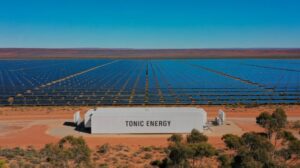Biodiesel vs. Diesel: Navigating the Fuel Frontier

In the ever-evolving landscape of alternative fuels, the showdown between biodiesel and traditional diesel has gained prominence. These two fuels represent distinct paths in the quest for cleaner and more sustainable energy sources. But what sets them apart, and which one is the superior choice? Let’s embark on a journey through the biodiesel vs. diesel debate to uncover the nuances and implications of each fuel.
The Basics: Diesel and Biodiesel
Diesel
Diesel fuel is a hydrocarbon-based fuel derived from crude oil through a process known as fractional distillation. It is renowned for its high energy density and efficiency, making it the fuel of choice for heavy-duty vehicles, trucks, ships, and industrial machinery worldwide. Diesel engines operate on the principle of compression ignition, where air is compressed to a high temperature, causing diesel fuel to ignite spontaneously. While diesel has been a workhorse for many industries, it has also been associated with carbon emissions and environmental concerns.
Biodiesel
In contrast, biodiesel is an alternative fuel composed of renewable resources. It can be produced from a variety of organic materials, with soybean oil, rapeseed oil, and animal fats being common feedstocks. Biodiesel can be blended with traditional diesel fuel or used as a standalone fuel source. Its appeal lies in its potential to reduce greenhouse gas emissions and dependence on fossil fuels. Biodiesel is often considered a cleaner and more sustainable option compared to traditional diesel.
Environmental Impact
Diesel
One of the primary drawbacks of conventional diesel fuel is its contribution to air pollution. Diesel engines emit nitrogen oxides (NOx), particulate matter (PM), and sulfur dioxide (SO2), all of which have detrimental effects on air quality and public health. Additionally, diesel engines release carbon dioxide (CO2), a potent greenhouse gas responsible for global warming.
Biodiesel
Biodiesel, on the other hand, offers a more environmentally friendly alternative. It produces significantly lower levels of harmful emissions, including reduced NOx and PM emissions. Moreover, biodiesel is biodegradable and non-toxic, further diminishing its environmental impact. The production of biodiesel can also be carbon-neutral if the feedstock crops absorb as much CO2 during growth as is released during combustion.
Energy Efficiency
Diesel
Diesel is well-known for its energy density and efficiency. It provides more energy per unit volume compared to many alternative fuels. This characteristic makes it particularly suited for long-haul transportation and heavy machinery, where fuel efficiency is critical.

Diesel fuel is still used on a large scale, image source: Unsplash
Biodiesel
While biodiesel has a lower energy density than traditional diesel, it still boasts respectable energy efficiency. Modern diesel engines can often run on biodiesel blends without significant performance degradation. However, biodiesel may result in slightly reduced fuel efficiency compared to pure diesel fuel.
Sustainability and Renewable Resources
Diesel
Traditional diesel relies on finite fossil fuel reserves, which are not sustainable in the long term. The extraction and consumption of fossil fuels also contribute to habitat destruction and environmental degradation.
Biodiesel
Biodiesel’s primary advantage is its reliance on renewable resources. Feedstocks for biodiesel production, such as vegetable oils and animal fats, can be replenished through agriculture and sustainable practices. This aspect aligns with the goals of reducing fossil fuel dependence and promoting environmental sustainability.
Compatibility and Infrastructure
Diesel
Diesel engines and infrastructure are well-established and widely available. Diesel fuel can be found at most gas stations, and diesel engines are ubiquitous in various industries. Transitioning to alternative fuels can be challenging due to the existing diesel infrastructure.
Biodiesel
Biodiesel’s compatibility with existing diesel engines and infrastructure makes it a more accessible option for transitioning away from traditional diesel. It can be blended with diesel fuel in various proportions (e.g., B5, B20) or used as a standalone fuel. However, as with any alternative fuel, some modifications and adjustments may be necessary for optimal performance and emissions reduction.
Economic Considerations
Diesel
Diesel fuel has traditionally been more affordable than alternative fuels, which has contributed to its widespread use. The established infrastructure for diesel production and distribution also helps maintain competitive prices.
Biodiesel
The cost of biodiesel can vary depending on the feedstock used and production methods. In some cases, biodiesel may be more expensive than traditional diesel. However, government incentives and increasing demand for sustainable fuels are driving efforts to make biodiesel more economically competitive.
Government Regulations and Incentives
Diesel
Government regulations regarding diesel emissions have become increasingly stringent in many parts of the world. This has led to the development of cleaner diesel engines and the use of low-sulfur diesel fuel. Compliance with these regulations can add costs for diesel users.
Biodiesel
Biodiesel often benefits from government incentives and policies aimed at reducing greenhouse gas emissions and promoting renewable fuels. Tax incentives, renewable energy credits, and mandates for biofuel blending in diesel fuel can make biodiesel an attractive option for businesses and individuals looking to reduce their carbon footprint.
Technological Advancements
Diesel
The diesel engine has seen significant advancements in recent years, with modern diesel engines featuring improved fuel efficiency and reduced emissions. This ongoing innovation has extended the life and relevance of traditional diesel.

Biodiesel can successfully replace diesel fuel, image source: Unsplash
Biodiesel
Biodiesel technology continues to evolve as well. Researchers are exploring new feedstock options, more efficient production methods, and ways to improve the cold-weather performance of biodiesel blends. These advancements aim to make biodiesel an even more viable and competitive fuel option.
Conclusion: A Complex Fuel Landscape
The biodiesel vs. diesel debate is nuanced and multifaceted, with various factors influencing the choice between these fuels. While biodiesel offers environmental benefits and the potential for reduced greenhouse gas emissions, traditional diesel maintains its position as a cost-effective and energy-dense fuel source.
The optimal choice between biodiesel and diesel depends on a combination of factors, including environmental goals, economic considerations, technological advancements, and government regulations. For some applications, a blend of both fuels or a transition to biodiesel may offer the best balance between sustainability and practicality.
Ultimately, the fuel landscape is evolving, and the choice between biodiesel and diesel is not a binary one. Instead, it involves navigating a complex terrain where various factors must be weighed to determine the most suitable fuel for specific applications and sustainability objectives. As we strive for a greener and more sustainable future, both biodiesel and diesel will continue to play important roles in meeting our energy needs.







